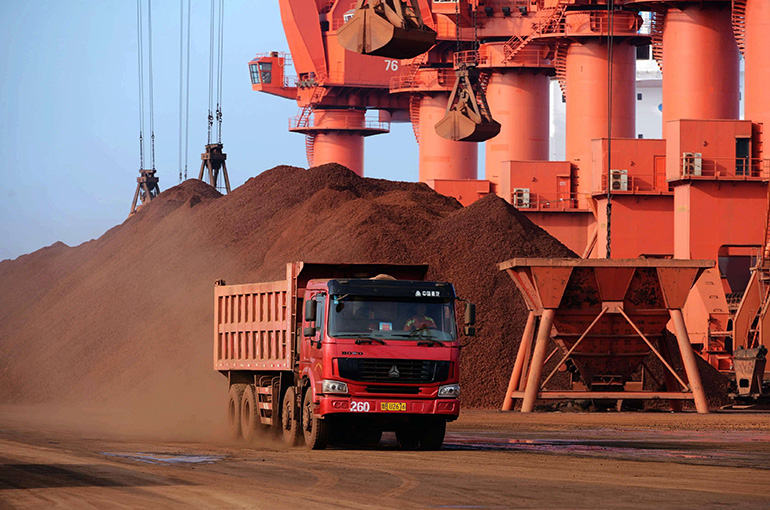 Rio Tinto, Vale CEOs Attend China’s Davos in Search of Opportunities in Low-Carbon Shift
Rio Tinto, Vale CEOs Attend China’s Davos in Search of Opportunities in Low-Carbon Shift(Yicai) March 26 -- The chief executives of Rio Tinto Group and Vale have taken part in the China Development Forum, an annual two-day business gathering that is often described as China’s Davos, to explore new opportunities in low-carbon transition.
During the forum held in Beijing on March 23 to 24, Rio Tinto CEO Jakob Stausholm met with electric vehicle manufacturers, visited phone and EV maker Xiaomi, and signed an agreement with steel producer HBIS Group to jointly explore low-carbon initiatives in the steel industry.
The memorandum of understanding the pair inked aims to improve the composition of blast furnace raw materials, increase energy efficiency, and reduce the carbon emissions from iron production through collaboration on hydrogen-based metallurgy.
Stausholm said the British-Australian miner has laid out a clear roadmap to achieve net-zero emissions by 2050 and views China's strengths in technological innovation and cost optimization as crucial to this goal.
Artificial intelligence technologies will spur greater demand for metals such as copper, aluminum, and lithium due to rising electricity consumption, Stausholm pointed out. The Danish business leader predicted that power grids will need to be built out, with solid-state energy storage batteries becoming critical infrastructure and ultimately boosting lithium demand.
While Vale CEO Gustavo Pimenta was attending the forum, the Brazilian mining company also penned an MoU with Shijiazhuang-based HBIS to push forward decarbonization efforts.
Their partnership aims to advance decarbonization efforts by exploring the use of Vale’s Tecnored furnaces to extract valuable metals from solid waste, contributing to a circular economy, along with other green and low-carbon initiatives.
Rio Tinto has several ongoing initiatives with Chinese partners. One of them is the Simandou high-grade iron ore project in Guinea, West Africa. Set to begin production this year, the project is progressing smoothly, with the first iron ore shipment expected by year-end.
Chinese firms have played a key role in the project by providing both investment and expertise in high-quality equipment and infrastructure. Notably, Xuzhou-based XCMG Group secured a contract worth nearly CNY800 million (USD110 million) to supply essential mining equipment.
Rio Tinto is also set to work with State Power Investment Corporation, a major Chinese state-owned power producer, on a pilot project at Mongolia’s Oyu Tolgoi copper mine. That project will focus on deploying electric mining trucks that can swap batteries.
Editor: Emmi Laine